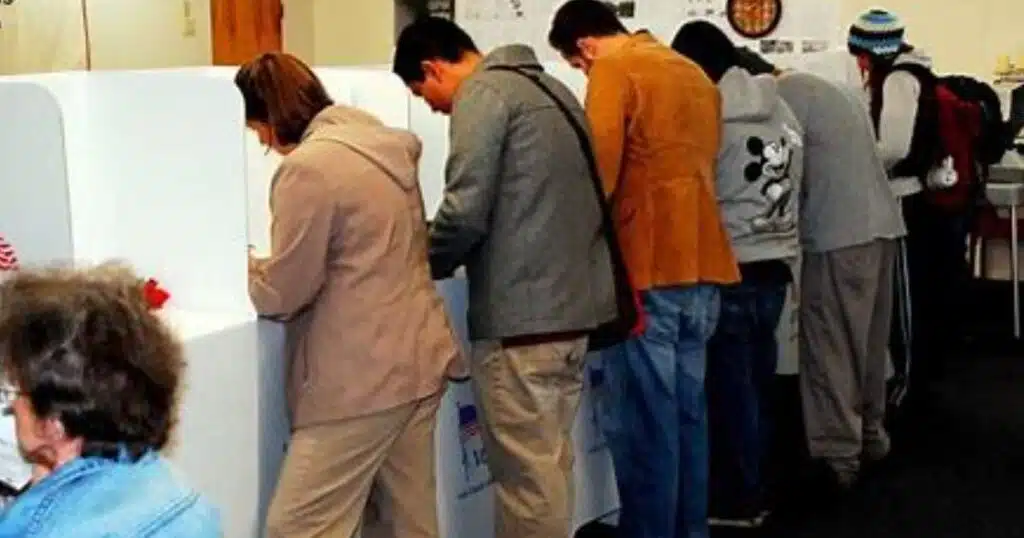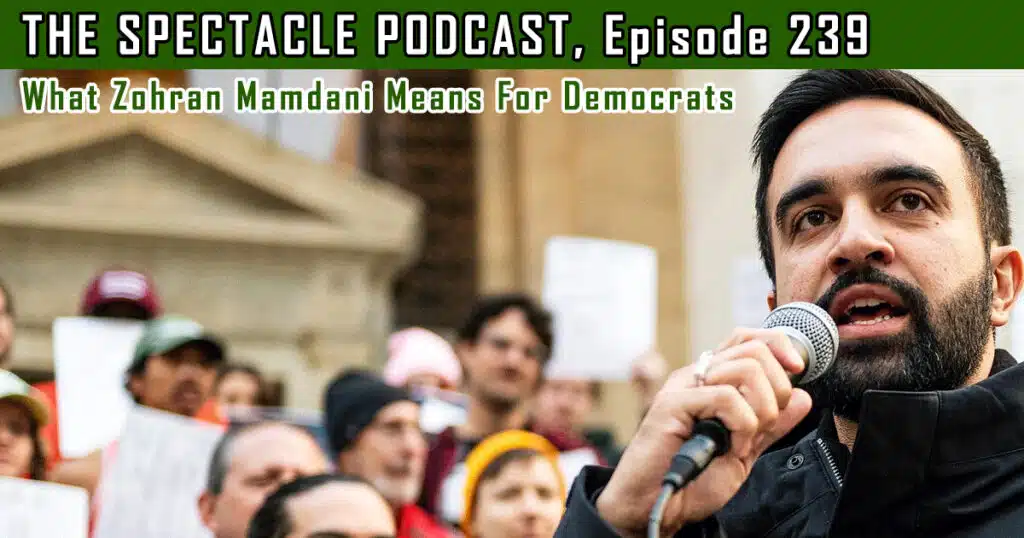
Will Noncitizen Vote Be Decisive in 7 Battleground States? Here Are the Numbers.
Noncitizens number in the hundreds of thousands in each of the seven most fiercely contested battleground states expected to decide the Nov. 5 presidential election, and research suggests more than 1 million of them could vote nationally if past voting patterns continue.
Of the seven battleground states, Georgia has the largest number of adult noncitizens at 787,588, according to numbers assembled by the Center for Immigration Studies.
North Carolina follows with 726,079 noncitizens, according to data collected by the U.S. Census Bureau in the first quarter of 2024 and analyzed by CIS at the request of The Daily Signal.
The third highest number of noncitizens in a battleground state is Arizona, with 611,717 ages 18 or older.
The Center for Immigration Studies, a think tank, advocates enforcement of federal border and immigration laws. About 6% of noncitizens vote, CIS says.
Pennsylvania has 516,123 voting-age noncitizens, according to CIS, and Michigan has 271,138. Nevada is next with 258,736 and Wisconsin, with 129,600, has the smallest number of noncitizens among the seven swing states, CIS says.
“In some states even if only a modest portion of noncitizens voted, it could possibly flip the state, as some states are likely to be decided by less than 30,000 votes,” Steven Camarota, director of research at the Center for Immigration Studies, told The Daily Signal. “Of course, that does not mean it has actually happened or will happen.”
“Noncitizens” is an umbrella term that includes both legal but unnaturalized residents as well as illegal immigrants.
What isn’t knowable is how many of these individuals are registered to vote or would vote in the Nov. 5 election.
However, a recent study by the Only Citizens Vote Coalition determined that if noncitizens vote at the same rate in 2024 as in 2008, about 1.5 million could cast ballots for president and other offices. This finding is consistent with separate research by Just Facts, a research institute that estimates between 1 million and 2.7 million noncitizens likely would vote.
Both studies attempted to update numbers from one in an academic journal by professors from Old Dominion University and George Mason University, which determined that about 6.4% of noncitizens voted.
Although Democrats and left-leaning media outlets have disputed the findings of that 2014 academic research, in recent years several blue and red states have reported numerous cases in which noncitizens registered to vote and went on to vote.
Just Facts, basing its research on the most recent data, determined that 10% to 27% of noncitizens are illegally registered to vote in the United States. Using the same dataset as the 2014 study, but with new data on illegal immigration, Just Facts estimates that 5% to 13% of noncitizens will vote in this year’s election.
The study, released in March, cites Census Bureau data finding that over 19 million noncitizens live in the United States.
“My study is not extrapolating. It uses the newest data to ascertain the newest numbers,” James Agresti, president of Just Facts, told The Daily Signal.
The study from Just Facts also concludes:
Given the estimates above and the fact that more than 20 million noncitizen adults live in the U.S., roughly 1 million to 2.7 million of them will illegally vote in 2024 unless stronger election integrity measures are implemented. This could easily overturn the will of the American people in close major elections.
So do the 2008 numbers for noncitizen voting apply to 2024? Maybe, says Jesse Richman, an associate professor of political science at Old Dominion University who was the lead author of the heavily cited study. But it’s not a certainty, he warns.
“There are variations and different sources of information on noncitizen voting rates,” Richman told The Daily Signal. “Those sources provide a range of different numbers. Many are lower figures. Keep in mind, there are substantial uncertainties about the magnitude of the problem.”
He noted that each side of the political spectrum tends to estimate the extent of the problem differently.
“Democrats lean too far in dismissing noncitizen voting as a nonissue,” Richman said. “Republicans sometimes lean too far into characterizing it as the monster that ate democracy.”
Among the seven battleground states, The Heritage Foundation’s Election Integrity Scorecard ranks Georgia—with the most voting-age noncitizens—as the best state for citizenship verification in voter registration. It earns the maximum of four points for that category. Georgia is second place overall on Heritage’s scorecard.
Arizona comes in third place for best verification of citizenship, with three out of four points. Michigan, Nevada, North Carolina, Pennsylvania, and Wisconsin each got zero points for citizenship verification.
Ken Cuccinelli, national chairman of the Election Transparency Initiative, says he has doubts that noncitizen votes will surpass 1 million. Even so, he says, these votes would be enough to tilt an election outcome.
“I would be shocked if the number is that high. Still, a congressional seat in Iowa was decided by six votes in 2020. A presidential election in a state can be moved by 10,000 to 20,000 votes,” Cuccinelli told The Daily Signal. “The Biden administration’s open border combined with Bidenbucks will make the problem worse.”
The term “Bidenbucks” refers to President Joe Biden’s executive order in 2021 requiring federal agencies to work with nonprofit organizations to crank up voter registration and participation.
“I don’t know the effect that Executive Order 14019 will have because the administration has stonewalled everything,” Cuccinelli said, referring to Biden’s order. “I usually count on the incompetence of the federal government when it works outside its mission scope not to have much impact.”
In 2024, the number of noncitizens totals 25.7 million, according to the Center for Immigration Studies, and of those 23.2 million are voting age. That’s up from a reported total of 21.6 million noncitizens in 2008.
Under current law, 17 jurisdictions across California, Maryland, Vermont, and the District of Columbia allow noncitizen voting for local elections only—such as for mayor, city council, or school board.
The 2014 study from professors at Old Dominion and George Mason universities looked at both the 2008 and 2010 elections and determined that noncitizen voting in 2008 tilted North Carolina in favor of Democrat Barack Obama over Republican John McCain in the presidential race. A different result in North Carolina would not have affected the ultimate outcome of the presidential election, however.
The study also found that noncitizen voting tilted the U.S. Senate race in Minnesota in favor of Democrat Al Franken over the Republican incumbent, Norm Coleman.
Nationally, more than 81% of noncitizens voted for Obama.
The Daily Signal previously reported that the Boston Election Department removed 70 noncitizens from the city’s voter rolls and that 22 had voted in the city, according to information obtained by a watchdog group, the Public Interest Legal Foundation.
Last May, Ohio Secretary of State Frank LaRose, a Republican, ordered 137 noncitizens removed from the voter rolls.
The previous May, the Virginia Department of Elections removed 1,481 noncitizens from the rolls; 335 noncitizens voted in Virginia elections over the previous four years.
In North Carolina, an audit found that 1,454 registrants didn’t appear to be naturalized before Election Day 2014 and would have to be challenged at the polls. Out of those, 89 appeared at polling places, 24 were challenged, and 11 of those challenges were sustained or justified.
In Allegheny County, Pennsylvania, the voter registrations of 139 illegal immigrants were canceled through self-reporting since 2006. Of those, 27% cast at least one vote.



